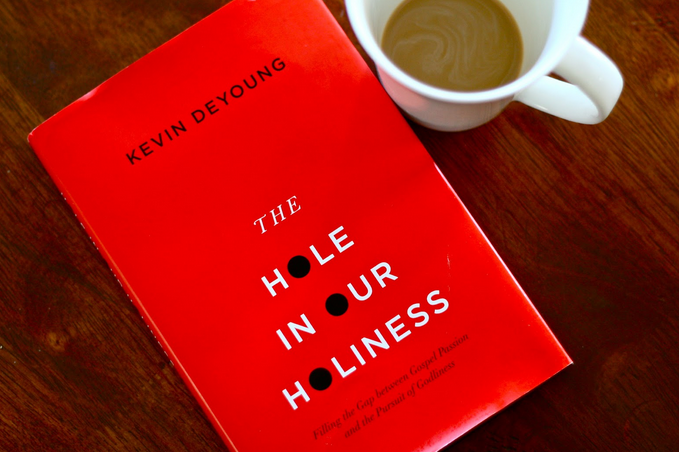
I just finished The Hole In Our Holiness by Kevin DeYoung and I thought it was terrific. My mind wasn’t prepared for the avalanche of Scripture he dropped on me and that’s probably a good thing.
The bit I wrestled with most, though, the thing that most grated against my ever-changing (too often) cultural understanding of Jesus Christ was this:
“When we violate our sense of right and wrong, even if the action in itself is not sinful, we are guilty of sin.”
How arbitrary!
Or rather, how difficult!
This leads to a war within my own self over what exactly is from my conscience and what is entering from the outside.
Romans 14:23 (which DeYoung cites) says this:
“But whoever has doubts is condemned if he eats, because the eating is not from faith. For whatever does not proceed from faith is sin.”
Faith, in its original form there, means “conviction of the truth of anything, belief.”
I believe in the regenerated heart Christ has given me but it’s a difficult leap for me to make to go from that to “this can guide you in all that you do.” Maybe that, in and of itself, is a lack of faith in Christ’s power to give me something so beneficial to my own life.
Either way, this will remain a struggle — one I will undoubtedly dig deeper into. One thing I cling to, and maybe the thing that holds the key for me, is something DeYoung wrote near the end of the chapter.
Something that stirred my heart and lit up my mind.
He wrote this about our consciences and Christ’s reign over them:
“A tender conscience is a terrible thing to waste.”


